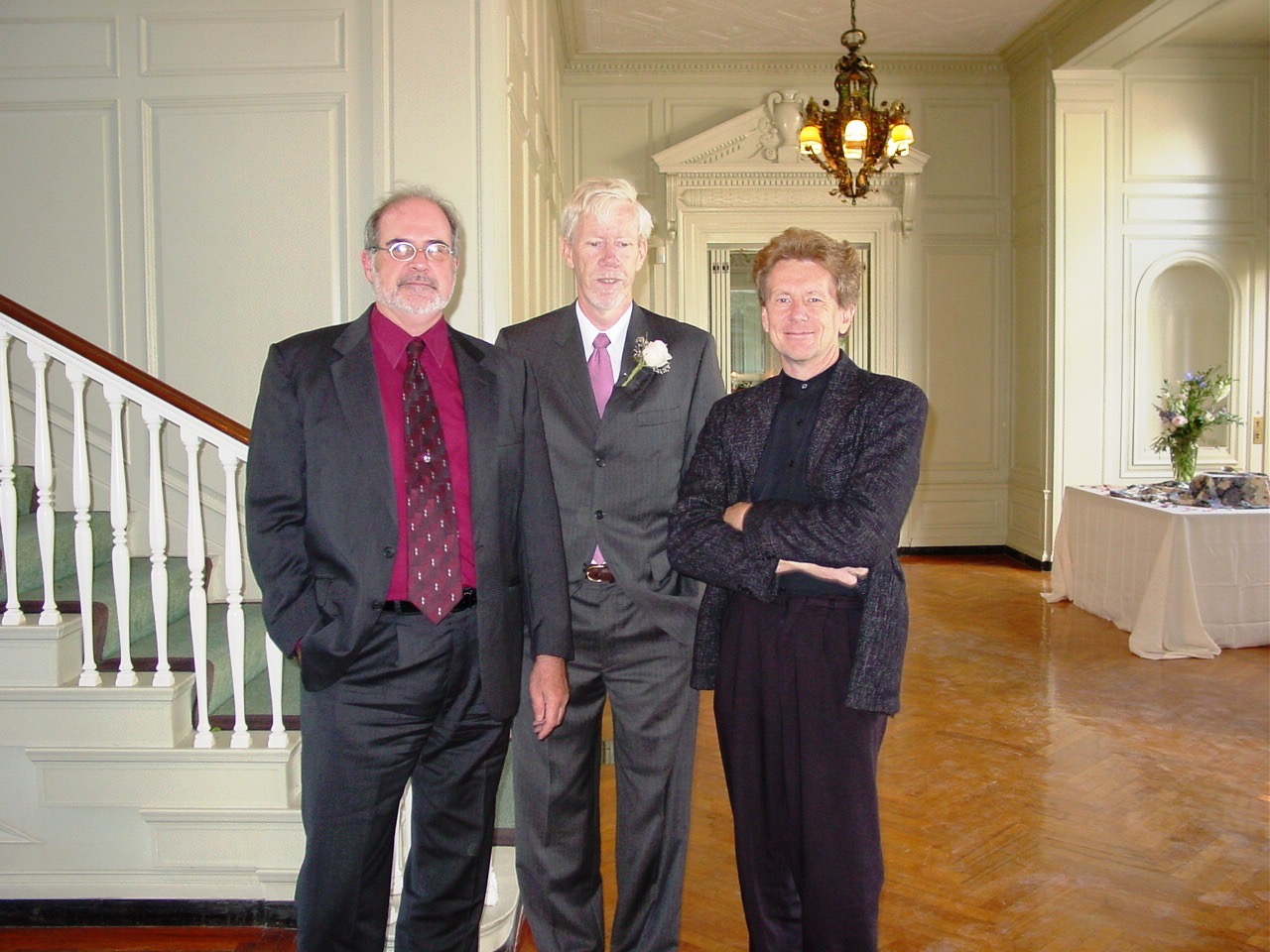Welcome to the Wakefield Doctrine (the theory of clarks, scotts and rogers)
RePrint Monday. Want to be sure to be obscure with our pick for a Monday RePrint, as we’re starting a week that is the occasion of the first of the ‘damn! no way we can do better than the first post! Let’s cut ‘n paste that bad boy and be done with it!’
That is correct, yo. Thanksgiving week. It’s the holiday that’s as on-book with the Doctrine as the Pesci/DeNiro Casino pen scene.
(New Readers: Here in Oceania, there is a holiday that we sometimes refer to as the Feast of Saint Roger. Always in November, all citizens are pretty much required to acknowledge, if not participate in it. And the liturgy of the day is celebration of everything rogerian. (Seriously! Tell us another day of the year that, as part of the holiday festivities, includes what can best be described as a lay collēcta invoked by a weekday morning weatherman!)
sorry, getting ahead of ourselfs.
Tomorrow is Tuesday, The morning of the Book of Wakefield (WIP) Then… Six Sentence Story day and then Thursday (‘Hallowed be thy college football game’)
But for today:
‘why is a raven like a writing desk’? (and) what is the Wakefield Doctrine’s take on those other personality theories?
September 27, 2011Welcome to the Wakefield Doctrine ( the theory of clarks, scotts and rogers )
A frequently asked question: ” What does the Wakefield Doctrine call this personality type? ( Always one of some other personality theory’s type), i.e. the Driver Type ( from the Merrill-Reid schema) or the ‘Type 2 ( of the 9 Enneagram Types ) or even the famous Axis 4 (from the rogerian geek school of personality typology). Sometimes answering this question is fun, other times it is frustrating but the outcome of this exchange is always less than is hoped for by the person posing the question.
Comparisons between mainstream personality types systems and the Wakefield Doctrine hardly ever yields an answer that is satisfactory to the interlocutor or the listener. While the underlying motivation for these questions is often well-meaning, the goal behind asking them is misguided. ( “well, don’t you see? The Wakefield Doctrine and ( well-known personality theory) are both talking about the same thing, so the Doctrineis not so unusual or odd or weird! Maybe if you describe clarks and scotts and rogers using some of the same language, you will attract more people to the blog!”
At this point the answer (from the Wakefield Doctrine is always the same: No. (…for 2 reasons):
- The Wakefield Doctrine is not scientifically based on empirical data nor does it rely on test subjects providing statistically significant and consistent reporting of identification with certain traits or behavior(s). The Wakefield Doctrine does not approach the ‘classification of personality’ on the basis of traits and quirks, phobias and foibles gathered from a test subject. ‘Personality Typing by Chart’, in which check-marks are totalled/summed up and added up, with a score at the bottom of a column labeld: ‘Your Personality Type! A lot like a dinner party at a restaurant, the host glances down to the bottom of the bill that the Waiter has brought to the table. Scanning the menu items and tallying the cost, the guests will hear: “OK! who had the FEAR OF HEIGHTS with the DISDAIN FOR AUTHORITY Combo? no, scott!! I am sure you ordered the MECURIAL TEMPERMENT COMBINED WITH AN INGRAINED RESISTANCE TO LEARNING BY EXAMPLE! OK folks, the total is: (2) Drivers with homophobic tendencies masked by an excessive interest in contact sports and (1) Passive-aggressive nurturing-type with un-resolved oedipal conflict compensated by a need to demonstrate language skills un-supported by actual ability! Alright everyone!! Ante up!”
- the Wakefield Doctrine is for you, not for them!
For most of us, the attraction to ‘personality types’ and ‘personal profiles and assessment’ is founded in a genuine curiosity about ourselves and a sincere desire to help other people in our lives handle their own problems and shortcomings better. Unfortunately, the focus all too often comes to rest on ‘the other person’. We all know this person, a caring friend/relative/co-worker who goes to great lengths to find answers so that they can ‘help you’! With a magazine article in hand (or a book, or a CD or DVD) that promises to describe personality types and how to identify them…whats the second thing you/they do after learning these well-researched, empirically based systems of understand the human psyche? The second thing (and sometimes the first) is to say, “Hey! You know who is a real Driver personality? This personality system totally got his/her number!! This is really helpful, I can’t wait to tell them how much I understand their personality!”
…this is where the Wakefield Doctrine and all the better researched, better marketed, widely-accepted personality theories part ways. No matter what you think you can do with the understanding that this Doctrine can help you get, it is for you, it is not for the other person.Are we saying that the Wakefield Doctrine ( the theory of clarks, scotts and rogers ) is neither scientifically valid nor an effective method for helping other people to solve their intractable mental and emotional problems?
Yes, yes we are saying that.So why bother with this thing of ours? Well, for starters:
- you will have an advantage over the people you meet in the course of your day today
- the behavior of the people in your life will make more sense to you (because of your understanding of the Wakefield Doctrine)
- you will be able to anticipate the actions and (re)actions of people to virtually any situation
- you will see your own life, habits, behaviors in a different light
- you will have fun with your friends spotting the clarks and the scotts and the rogers as you go about your day today
Sound like reason enough to figure out this blogsite?
I promised Molly, a short and concise definition of the Wakefield Doctrine:
…three personality types predicated on (three) characteristic ways to perceive the world at large. All people are born with the potential to see the world as any of the three (types) that we call: clarks, scotts and rogers. (Further) the Doctrine maintains that at an early age we become predominately one (of the three) but we never lose the capacity to experience the world as do the other two. The personality types of the Wakefield Doctrine are gender and culture neutral and is predicated that the personality type is derived from understanding the reality in which a person lives, not by trying to identify specific traits, interests, drives or ideation. The Wakefield Doctrine is a tool meant to aid a person who would try to see the world as the other person does.
Works pretty damn well, too!
*












